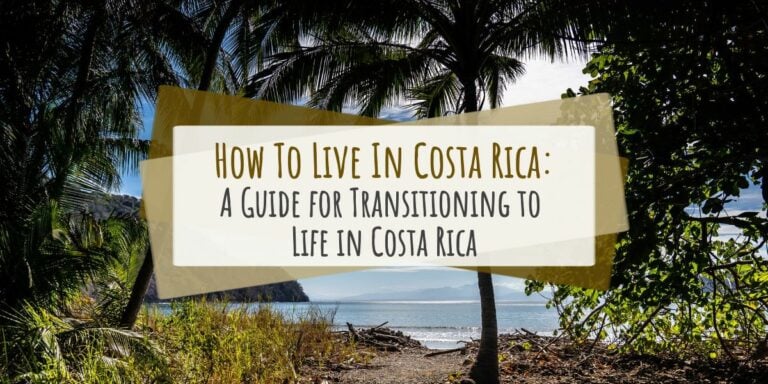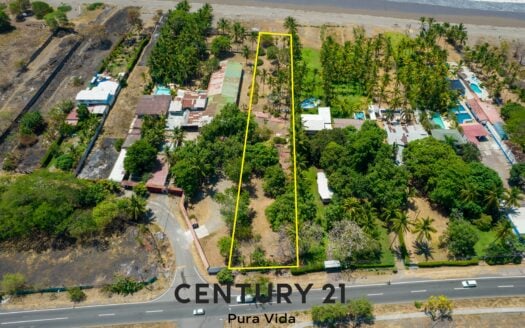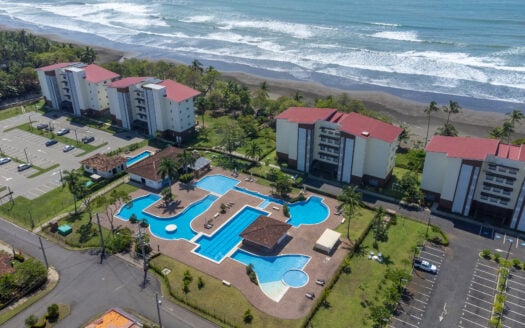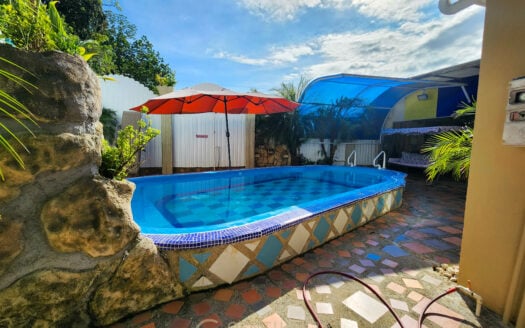Are you looking to experience a vibrant Latin American culture and live in one of the most beautiful countries in the world? If so, Costa Rica may be the place for you! With its tropical climate, stunning landscapes, and friendly people, Costa Rica is becoming an increasingly popular destination for expats. Whether you’re considering moving there permanently or just taking a break from your life somewhere else, this guide will provide you with the essential information needed to make your move to Costa Rica smooth and successful. So if you’re ready to start planning your trip across the border, let’s get started!
Visas And Immigration Requirements
Living in Costa Rica is like taking a deep breath of fresh air. To enjoy the country’s vibrant culture, stunning beaches, and lush jungles full of wildlife, you will need to satisfy its immigration requirements.
Permanent residency requires that an applicant have proof of sufficient funds, and no criminal record and provide a valid passport with at least six months remaining validity upon arrival in Costa Rica.
A temporary resident visa or work permit can be applied for if one has been offered employment in the country or has their own business venture planned. The expat community also provides support for those looking to gain long-term status in the country.
In addition to permanent residency, there are several other types of visas available including student visas, religious worker visas, investor/business owner visas and various categories of temporary residence permits such as retirement visas and tourist visas which allow people to stay up to 90 days per year without needing additional documentation.
Therefore, when planning your move to Costa Rica it is important to understand what type of visa best fits your needs before applying. With the right paperwork, it’s easy to experience all that this wonderful nation has to offer on your terms – whether that be settling down permanently or just visiting for a while!
Finding Accommodation
Living in Costa Rica is an exciting prospect, and finding the right accommodation can make all the difference. For permanent residents of this tropical country, there are many options available. From beachfront villas to city apartments with views of the ocean – one could easily find their dream home here.
Costa Rica’s cost of living makes it attractive for those seeking a more relaxed lifestyle. Renting property is relatively inexpensive compared to other countries in Central America, making it easy to find comfortable places within budget. You’ll also have access to beautiful beaches, lush jungles and national parks that offer great opportunities for exploration.
For those looking for short-term residency or vacation rental accommodations, there are plenty of choices too. Hotels, hostels, guest houses, and bed & breakfasts abound throughout the country offering quality services at reasonable prices.
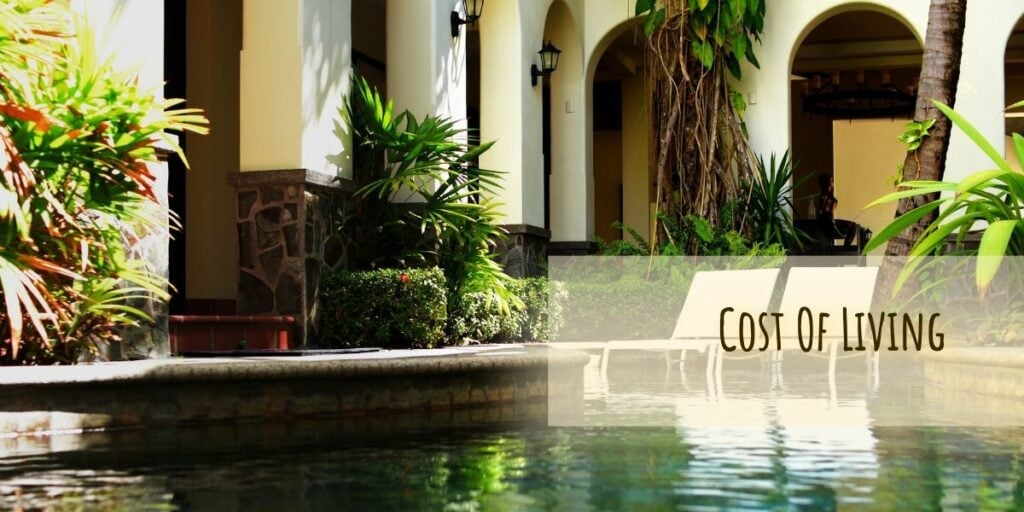
Cost Of Living
Now that you’ve found a place to stay, it’s time to consider the cost of living in Costa Rica. Though there are many advantages to moving here such as warm weather, beautiful beaches, and friendly locals, Costa Rica also has a high standard of living with monthly expenses that can add up quickly. Here’s what you need to know about the cost of living in this tropical paradise:
1. Monthly Income – Most people who move to Costa Rica will have to rely on some form of income from abroad or from investments made before their relocation. Some expats do find jobs within the country but most don’t make enough money for an adequate standard of living without supplemental income from outside sources.
2. Standard Of Living – The overall standard of living is quite high compared to other Latin American countries, so expect prices for food and entertainment to reflect that fact. On average, residents should expect rent, utilities, and car payments to take up around 35-40% of their total budget each month.
3. Public Healthcare – For those who plan on staying long-term in Costa Rica, public healthcare is available at very low costs if not free altogether depending on your residency status. While private healthcare is much more expensive than public options, it may be worth considering due to its improved quality standards and shorter wait times for appointments.
4. Financial Institution – To receive any kind of salary or investment income into a local bank account, you’ll typically need proof of residence and a valid ID card issued by the government which you must apply for after arriving in the country. It’s important that all financial transactions are done through reputable international banks or institutions that offer services like credit cards and internet banking access as well as good customer service support teams based outside Costa Rica itself.
With careful planning and budgeting, it is possible to enjoy a comfortable lifestyle in Costa Rica while still saving money over time; all it takes is finding the right balance between necessities and luxuries!
Transportation Options
Costa Rica receives a significant number of tourists annually, including digital nomads and expats, totaling over 2.35 million visitors in 2022. The country has a high standard of living and provides ample transportation options for its residents. There are various means of transportation available for exploring Costa Rica and Latin America, including air-conditioned buses, boats, and cars.
Public bus system
If you’re looking for reliable transport in Costa Rica, then look no further than the public bus system. The intercity buses offer air conditioned coaches that are comfortable and economical, allowing passengers to travel between towns conveniently. Plus, they usually come equipped with wifi so you can stay connected while traveling!
Car rental
For those who want more freedom in their travels, renting a car is another great option. You’ll find plenty of agencies throughout the country offering competitive rates on cars and 4x4s – perfect if you want to escape the hustle and bustle of city living. If you plan on driving yourself, just remember that traffic rules may be different from what you’re used to back home.
Bicycle rental
On top of that, Costa Rica also boasts a wide range of bicycle rental companies which provide eco-friendly bikes for getting around town or exploring nature trails at your own pace. Alternatively, if water sports are your thing then there’s even passenger ferry services available across some parts of the country!

Language And Culture
Costa Rica’s official language is Spanish, so it’s important to brush up on your español if you’re planning a move there. However, most people who live in the country are used to speaking English as well; many of them can even understand basic phrases and words. You’ll find that the community of expats living in Costa Rica also speaks both languages fluently, making it easier for newcomers to adapt quickly.
The culture in Costa Rica is unique and vibrant. It has an abundance of natural beauty, from rainforests and beaches to volcanoes and cloud forests, making it a great place to explore. The green season (May-November) brings plenty of sunshine during the day with occasional showers at night – perfect weather for outdoor activities! People here tend to be laid back yet passionate about their work; they value family life highly and take pride in knowing how far the country has come despite some lower income levels than those found elsewhere.
Banking And Currency Exchange
Living in Costa Rica is an exciting experience, and setting up a financial institution account there is the first step. The banks in Costa Rica provide all of the same services offered by other major global banking institutions, including debit cards, online and mobile banking, loans, mortgages and investment options.
The currency used in Costa Rica is the Colon (CRC). Although it’s possible to bring large amounts of US dollars into the country without paying taxes or fees; however exchanging money can be done conveniently at any bank branch or authorized exchange office for a small commission fee.
There are several expat-friendly banks that have English language websites which make opening and managing accounts easier for foreign residents who don’t speak Spanish. Furthermore, living in Costa Rica allows you to enjoy its slower pace of life compared to other countries, especially during the dry season when temperatures remain pleasant throughout the day.
Permanent residence status must be obtained from immigration authorities before being able to open a local bank account with full access rights. For this reason obtaining permanent residency should be one of your initial steps after settling down in Costa Rica as it will help facilitate many aspects of daily life.
Healthcare System
Costa Rica’s healthcare system is widely regarded as high-quality, with numerous doctors fluent in both English and Spanish. The country is prioritizing health and wellness. Costa Rican citizens and permanent residents have access to a free or low cost public healthcare system, while private hospitals and clinics provide comprehensive treatment to all. Access to medical care is widely available in many regions.
The health care systems of Latin America may seem daunting at first glance; luckily there are resources available to make navigating them easier such as patient advocacy groups who can provide guidance and assistance.
In addition, many expat communities are very active online where members often share their experiences with different doctors or treatment centers within specific areas of the country. With knowledge comes power; understanding the local healthcare system will give peace of mind when living in Costa Rica!
With this newfound security, it’s time to explore employment opportunities…

Employment Opportunities
Living in Costa Rica offers many employment opportunities that can provide an abundance of freedom and satisfaction. International Living, a community of American expats living throughout Central America, has opened up new job prospects for those looking to make the move to Costa Rica. These jobs range from teaching English online or working remotely as a freelancer to starting your own business or becoming a full-time employee with one of the country’s larger companies.
In addition, there are a number of different industries in which you can find work: tourism, hospitality, finance, engineering, technology and more. With Costa Rica’s friendly tax system and its growing economy, it is easy to set yourself up for success. The quality of services available is also top notch; whether it be accounting firms, web designers or lawyers – all offer highly professional assistance when setting up shop in this dynamic nation.
The cost of living in Costa Rica is quite reasonable compared to other countries around the globe. Groceries are relatively inexpensive and rent prices vary depending on where exactly you decide to call home. It is not uncommon for those relocating here to receive generous relocation packages offered by potential employers; travel expenses may even be covered if they choose to take advantage of such benefits.
Security Considerations
Living in Costa Rica is like leading a double life. On the surface, it’s sunny, serene and inviting with attractive landscapes and friendly locals. But beneath that thin veneer lies an underlying layer of security considerations to be aware of when living there.
When venturing out beyond your own neighborhood – especially outside major cities – always stay alert and take note of where you go. Though violent crime is rare in Costa Rica compared with other countries in Central America, it’s wise to travel with friends or family if possible. And don’t forget to keep up-to-date on local news so you know what areas should be avoided altogether due to current events or unrest.
Though some extra vigilance may be necessary for safe travels within Costa Rica, following these simple steps can help make sure your journeys remain unhindered by potential dangers. With knowledge comes power – and peace of mind too! Now that we’ve discussed security concerns associated with living here, let’s explore shopping, dining, and entertainment opportunities available throughout this vibrant nation.
Shopping, Dining, And Entertainment
Shopping, dining, and entertainment in Costa Rica is a great way to get an authentic experience. Whether you choose to explore the Central Valley or take part in some of the unique cultural events around the country, there are plenty of opportunities for adventure. In terms of food options, you can find everything from traditional fare such as rice and beans to international cuisine like Italian, Mexican, and even sushi! Plus, during the rainy season (May-November), it’s possible to sample some delicious local dishes that are only available then.
If you’re looking for more than just restaurants and shopping malls, there are countless activities throughout Costa Rica that will make your stay memorable. From ziplining through lush jungle greenery to visiting volcanoes or going on a wildlife tour – it’s all up for grabs when exploring this beautiful country.
Education System
Costa Rica’s education system is similar to other American countries – children attend six years of primary school followed by four or five years of secondary school depending on specialization.
The cost for attending public schools varies based on income level but generally averages above one thousand colones per semester or more than two thousand US dollars annually. Private schools are more expensive and require tuition fees before enrollment can be considered. Nonetheless, due to its emphasis on learning and development over test scores, Costa Rica still ranks among the top Latin American countries when it comes to educational outcomes.
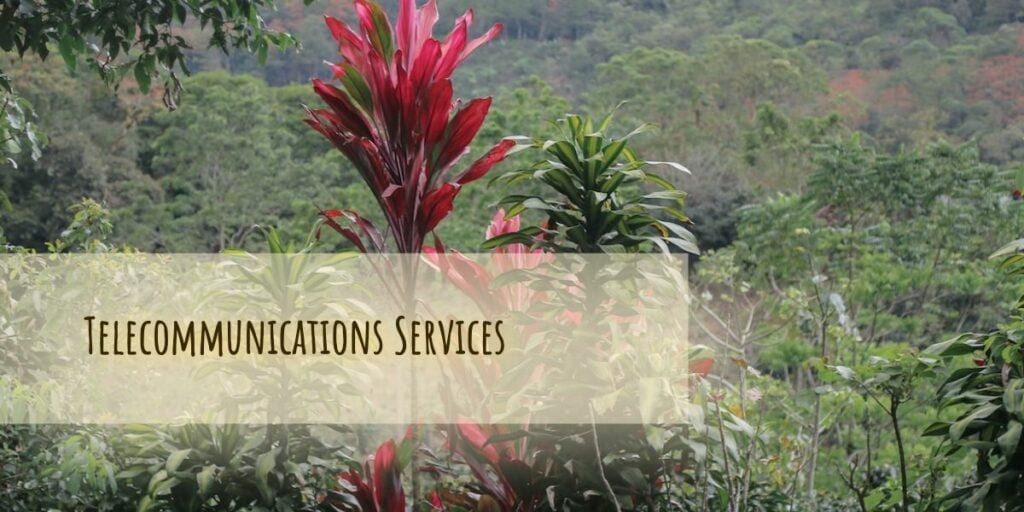
Telecommunications Services
Living in Costa Rica means being connected to friends and family around the world. Telecommunications services are reliable, cost-effective, and widely available throughout the country. Here are some of the key points you should know about telecoms in Costa Rica:
Mobile phones and prepaid SIM card
Mobile phones and prepaid SIM cards are a convenient and cheap way to stay connected while living in Costa Rica. To get a prepaid SIM card, you only need your original passport or photo ID, cash, and a few minutes to fill out a short form. The cost for a SIM card is around 2000 colones or (~$3.50 USD), and it’s best to pay in Costa Rican colones.
It’s important to note that your smartphone must be quad band, use a SIM card, and be unlocked. You can check with your home provider to see if your phone is unlocked and can accept international SIM cards before you leave. Prepaid SIM cards typically expire after 90 days of no use, so make sure to use it regularly.
There are three major phone companies in Costa Rica: Kolbi, Liberty, and Claro. Kolbi is the government cell phone network company and has the widest coverage in Costa Rica. It’s best for nationwide use, especially if you plan to stay in the city and main destinations. Claro also has good coverage nationwide, but more for rural areas.
To recharge your phone, you can go to the supermarket, pulperia (convenience store), cell phone stores, or the phone company’s office. Look for a sign with the phone company’s logo to indicate they can recharge SIM cards.
Internet access
Internet access is also a breeze, with many providers offering wireless internet packages. Costa Rica has come a long way over the last decade when it comes to telecommunications services – making staying connected while living abroad even easier! It’s now possible to do business online or stay in touch with loved ones across continents without breaking your budget. Plus, you can enjoy faster speeds than ever before thanks to fiber optic cables that have been installed throughout much of the country.
Telecommunications services provide freedom for expats who want to live life on their own terms without sacrificing connection back home. With so many options available, there’s no excuse not to stay connected during your time in Costa Rica. Now let’s take a look at climate and weather conditions which often play an important role when choosing where to settle down overseas…
Frequently Asked Questions

How Much Money Is Needed To Live Comfortably In Costa Rica?
Are you curious about how much money is needed to live comfortably in Costa Rica? The cost of living varies depending on where and how you choose to live, but there are some general guidelines that can help answer the question.
Costa Rica isn’t a super cheap country – it has a more expensive lifestyle than many other Central American destinations like Nicaragua or El Salvador. Depending on your needs, you could get by with as little as $1,500–2,000 per month for basic expenses. But if you want to enjoy a comfortable life with occasional luxuries (like eating out at restaurants), then budgeting around $3,000–4,000 should be enough.
Rent prices vary quite significantly throughout the different regions of Costa Rica. For instance, apartments close to San José tend to be pricier than those closer to the beach areas. It’s also possible to rent a house near one of the tourist towns like Tamarindo or Manuel Antonio from anywhere between $700-$1500/month depending on size and location.
What Is The Best Way To Get Around Costa Rica?
For those looking to explore the wonders of Costa Rica, getting around can be a challenge. Whether it’s traversing long distances or navigating narrow city streets, being able to get from point A to point B is essential for adventurers and travelers alike. Fortunately, there are many ways to make your journey through Costa Rica easier:
* Renting a car in Costa Rica provides independence and flexibility for exploring at one’s own pace.
* Taking public transportation offers an inexpensive way to move between cities with relative ease.
* Hiring private drivers makes short trips more convenient while allowing visitors to experience the local culture firsthand.
For anyone seeking freedom and adventure, these options provide viable solutions that allow you to tour the country without breaking the bank! Renting a car gives travelers access to remote areas and allows them ultimate control over their itinerary; it’s also possible to rent cars without having international driving permits. Public buses offer cheap transport throughout much of Costa Rica, though schedules may not always be reliable; nevertheless, riding on public buses is always an exciting opportunity for cultural exploration as you mingle with locals during your travels. Private drivers are another great option – they can pick up passengers from airports or other locations and take them anywhere they want within reason. This means less stress worrying about directions or finding parking spots! Plus, having conversations with experienced drivers can really help enhance your overall understanding of the area.
No matter what mode of transportation suits you best, each option offers something unique when it comes to experiencing all that this amazing Central American destination has to offer! From renting cars that give you complete freedom, to taking a bus ride full of new sights and sounds – every choice presents opportunities for meaningful discovery along your path through Costa Rica. By carefully considering all available methods of travel across this beautiful land, adventures will surely find themselves immersed in its vast array of natural beauty and vibrant culture before too long!
What Kind Of Healthcare Services Are Available In Costa Rica?
Living in Costa Rica can be a great experience, but when it comes to healthcare services, you may have some questions. What kind of healthcare services are available in this country? That’s an important question to consider before deciding whether or not Costa Rica is the right place for you.
When it comes to medical care, Costa Rica has a wide variety of options. The public health system offers free preventive care and basic coverage if your income level qualifies, while private insurance is also fairly common. Private hospitals tend to offer more personalized care than public facilities do, so many people opt for them despite the additional cost. Additionally, there are several international clinics throughout the country that provide top-notch service at competitive prices.
In terms of mental health services, Costa Rica boasts a wide range of psychologists and psychiatrists who specialize in treating conditions such as depression and anxiety. There are also counselors who help with issues like addiction or family relationships. For those seeking alternative treatments, there are plenty of natural healing centers which offer traditional therapies such as acupuncture and herbal remedies.
Overall, living in Costa Rica gives you access to quality healthcare services without breaking the bank — something that’s hard to come by these days! Whether you need routine checkups or specialized treatment, you’ll find what you need here — making it easier than ever to stay healthy during your time abroad!
What Is The Average Cost Of Living In Costa Rica?

Living in Costa Rica can be an exciting and rewarding experience. With its beautiful natural surroundings, diverse culture, and warm climate it has something to offer everyone. One of the most important questions that people considering living in this country have is what the cost of living will be like.
Eagerly anticipating a life full of adventure, you may wonder how much money you’ll need for everyday expenses in order to make your new home comfortable. Here’s a look at some key points about the average cost of living in Costa Rica:
* Groceries: Prices are generally higher than those found in North America but still affordable.
* Rent/Mortgage: Rental prices vary greatly depending on location but are typically lower than other countries with similar climates.
* Utilities: Utility costs tend to be low compared to other developed nations due to government subsidies.
* Transportation: Public transportation is widely available throughout the country, making it relatively inexpensive to get around.
The best way to determine what kind of budget you will need when moving to Costa Rica is by looking at actual costs for each item; rent, food, utilities etc., as these will differ from one area or another within the country. However, overall it can be said that living here should not break the bank – even if you’re living comfortably! The cost of living is significantly lower than many other places in the Western Hemisphere so you won’t have to worry about running out of cash too quickly while enjoying all that this vibrant nation has to offer!
Costa Rica provides expatriates with an excellent opportunity for a better quality of life without sacrificing financial security – allowing them live their dreams free from worry and anxiety over money matters. From tropical beaches and lush rainforests teeming with wildlife, there’s no shortage of things to do or see while exploring this amazing land – giving freedom-seekers plenty of reasons why they should choose this destination as their new home away from home!
Conclusion
Knowing how to live in Costa Rica isn’t a hard thing to do, but as with any life-changing decision, the transition is something you should plan out carefully. After legalities, which aren’t so rough compared to other countries, finances are also something that you should be knowledgeable of. A Costa Rican bank like Banco de Costa Rica is offering banking services and the ability to open a Costa Rican account.
To experience the true Pura Vida in this tropical weather paradise, whether you choose rural areas or bustling cities like San Jose, you should think like Costa Rica pros. Know what they know and try to navigate the life and lifestyle in Costa Rica on your own. You will eventually have to do so.
Consider entering and re-entering Costa Rica with a tourist visa or a digital nomad visa for a cost-effective way to stay and work in Central or South America without having to worry about their immigration status.
Whether you are coming as a tourist or planning to stay long-term, there are certainly plenty of benefits that make Costa Rica an attractive place to live. With a little bit of research and planning, those looking for an incredible new life abroad can find all they need in this wonderful country where Pura Vida truly reigns supreme!

